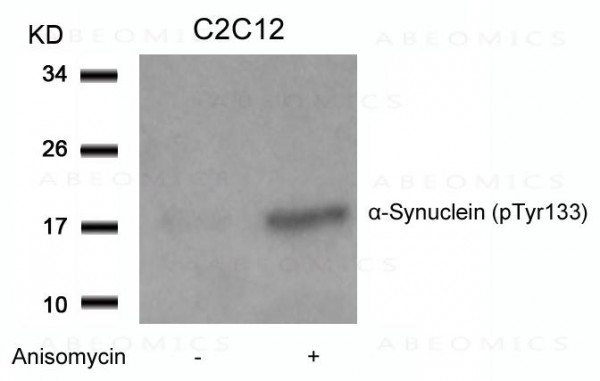Cookie-Einstellungen
Diese Website benutzt Cookies, die für den technischen Betrieb der Website erforderlich sind und stets gesetzt werden. Andere Cookies, die den Komfort bei Benutzung dieser Website erhöhen, der Direktwerbung dienen oder die Interaktion mit anderen Websites und sozialen Netzwerken vereinfachen sollen, werden nur mit Ihrer Zustimmung gesetzt.
Konfiguration
Technisch erforderlich
Diese Cookies sind für die Grundfunktionen des Shops notwendig.
"Alle Cookies ablehnen" Cookie
"Alle Cookies annehmen" Cookie
Ausgewählter Shop
CSRF-Token
Cookie-Einstellungen
FACT-Finder Tracking
Individuelle Preise
Kundenspezifisches Caching
Session
Währungswechsel
Komfortfunktionen
Diese Cookies werden genutzt um das Einkaufserlebnis noch ansprechender zu gestalten, beispielsweise für die Wiedererkennung des Besuchers.
Facebook-Seite in der rechten Blog - Sidebar anzeigen
Merkzettel
Statistik & Tracking
Endgeräteerkennung
Kauf- und Surfverhalten mit Google Tag Manager
Partnerprogramm
| Artikelnummer | Größe | Datenblatt | Manual | SDB | Lieferzeit | Menge | Preis |
|---|---|---|---|---|---|---|---|
| ABE-35-1260-50 | 50 µl | - |
3 - 11 Werktage* |
574,00 €
|
Bei Fragen nutzen Sie gerne unser Kontaktformular.
Bestellen Sie auch per E-Mail: info@biomol.com
Größere Menge gewünscht? Bulk-Anfrage
Bestellen Sie auch per E-Mail: info@biomol.com
Größere Menge gewünscht? Bulk-Anfrage
SncA is a member of the synuclein family of structurally related proteins that are prominently... mehr
Produktinformationen "Anti-phospho-Alpha-Synuclein (Tyr133)"
SncA is a member of the synuclein family of structurally related proteins that are prominently expressed in the central nervous system, which also includes beta- and gamma-synuclein. Synucleins are abundantly expressed in the brain and SncA and Snc-Beta inhibit phospholipase D2 selectively. SncA may serve to integrate presynaptic signaling and membrane trafficking. Aggregated SncA proteins form brain lesions that are hallmarks of neurodegenerative synucleinopathies. Defects in SncA play a role in the pathogenesis of Parkinson disease. SncA peptides are a major component of amyloid plaques in the brains of patients with Alzheimer disease. SncA shares 95% sequence homology with rat SncA. Rat SncA is specifically expressed in brain and is associated with synaptosomal membranes in neurons Protein function: Neuronal protein that plays several roles in synaptic activity such as regulation of synaptic vesicle trafficking and subsequent neurotransmitter release (PubMed:28288128, PubMed:30404828, PubMed:20798282, PubMed:26442590). Participates as a monomer in synaptic vesicle exocytosis by enhancing vesicle priming, fusion and dilation of exocytotic fusion pores (PubMed:28288128, PubMed:30404828). Mechanistically, acts by increasing local Ca(2+) release from microdomains which is essential for the enhancement of ATP-induced exocytosis (PubMed:30404828). Acts also as a molecular chaperone in its multimeric membrane-bound state, assisting in the folding of synaptic fusion components called SNAREs (Soluble NSF Attachment Protein REceptors) at presynaptic plasma membrane in conjunction with cysteine string protein-alpha/DNAJC5 (PubMed:20798282). This chaperone activity is important to sustain normal SNARE-complex assembly during aging (PubMed:20798282). Plays also a role in the regulation of the dopamine neurotransmission by associating with the dopamine transporter (DAT1) and thereby modulating its activity (PubMed:26442590). [The UniProt Consortium]
| Schlagworte: | Anti-phospho-SNCA, Anti-phospho-NACP, Anti-phospho-Alpha-synuclein, Anti-phospho-Non-A beta component of AD amyloid, Anti-phospho-Non-A4 component of amyloid precursor, Polyclonal Antibody to Alpha-Synuclein (Phospho-Tyr133) |
| Hersteller: | Abeomics |
| Hersteller-Nr: | 35-1260-50 |
Eigenschaften
| Anwendung: | WB, IF |
| Antikörper-Typ: | Polyclonal |
| Konjugat: | No |
| Wirt: | Rabbit |
| Spezies-Reaktivität: | human, mouse, rat |
| Immunogen: | Peptide sequence around phosphorylation site of tyrosine 133 (E-G-Y(p)-Q-D) derived from Human a-Synuclein. |
| Format: | Purified |
Datenbank Information
| KEGG ID : | K04528 | Passende Produkte |
| UniProt ID : | P37840 | Passende Produkte |
| Gene ID | GeneID 6622 | Passende Produkte |
Handhabung & Sicherheit
| Lagerung: | +4°C |
| Versand: | +4°C (International: +4°C) |
Achtung
Nur für Forschungszwecke und Laboruntersuchungen: Nicht für die Anwendung im oder am Menschen!
Nur für Forschungszwecke und Laboruntersuchungen: Nicht für die Anwendung im oder am Menschen!
Hier folgen Informationen zur Produktreferenz.
mehr
Hier kriegen Sie ein Zertifikat
Loggen Sie sich ein oder registrieren Sie sich, um Analysenzertifikate anzufordern.
Bewertungen lesen, schreiben und diskutieren... mehr
Kundenbewertungen für "Anti-phospho-Alpha-Synuclein (Tyr133)"
Bewertung schreiben
Loggen Sie sich ein oder registrieren Sie sich, um eine Produktbewertung abzugeben.
Zuletzt angesehen








